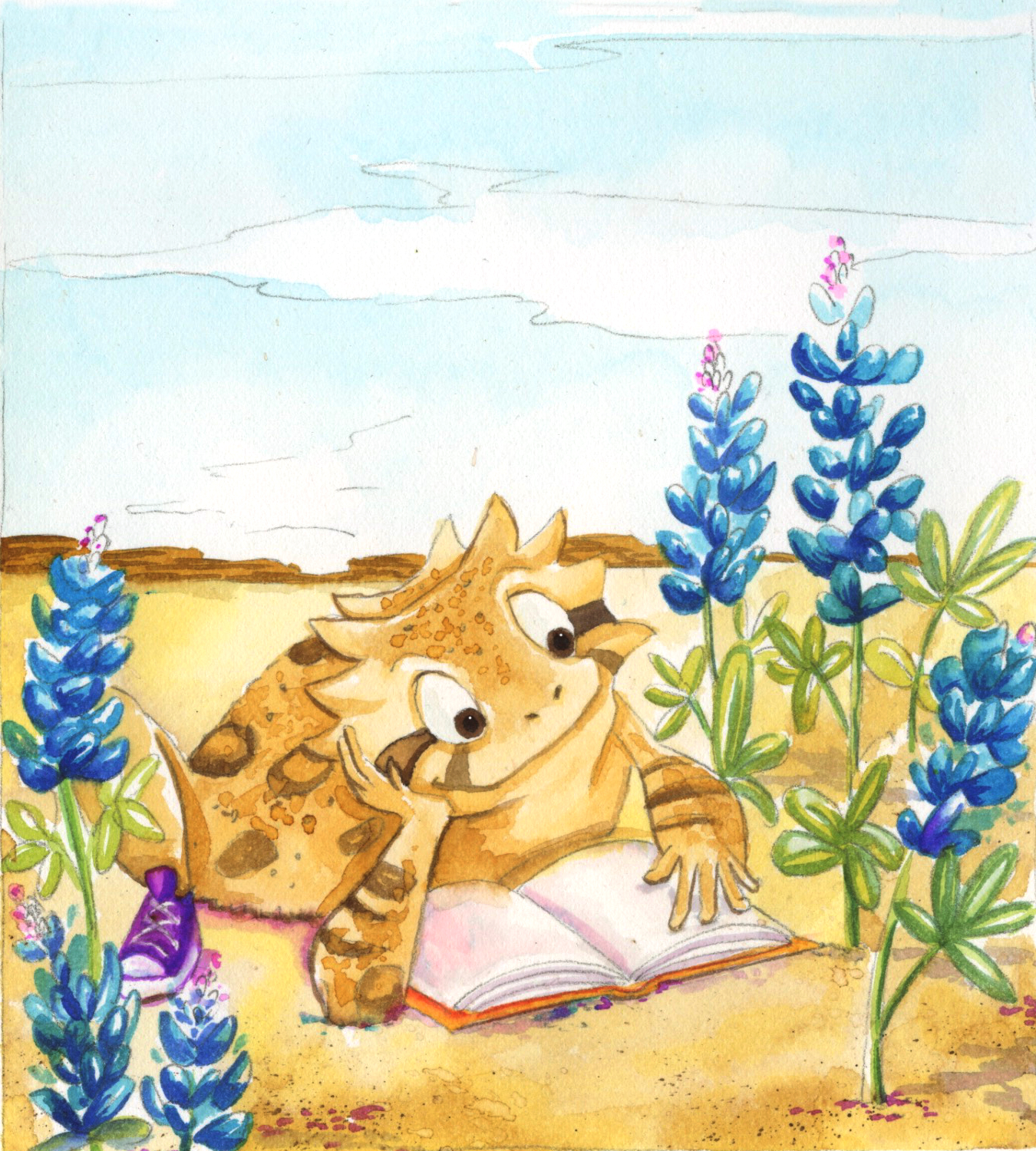How to Turn Kids into Readers
Find a genre and format that will get them interested, from graphic novels to audiobooks.

Illustration by Holly Weinstein
How to Turn Kids into Readers
Find a genre and format that will get them interested, from graphic novels to audiobooks.
The chorus of voices and number of choices in children’s literature have expanded in recent years, making it easier for young readers to find and connect with works that spark their interest and imagination.
“There are so many exciting things happening right now in children’s literature,” said Jennifer Smith, assistant professor of professional practice in the College of Education.
For starters, there are the greater variety of formats and visual appeal of children’s books. Novels in comic-strip format “have become increasingly popular among children,” Smith said. “They’re even appearing on book award lists.”
Children’s books also now represent a greater spectrum of the population. “The more we’re seeing authors of color or LGBTQ authors or disabled authors writing their stories, we’re seeing more realistic portrayals of what children’s lives are like,” said Micah-Jade Stanback, a PhD candidate in children’s literature and Black childhood studies. She pointed to Lee & Low Books, the largest multicultural children’s book publisher in the United States, as a leader in diversity. However, for those diverse voices to be heard, Stanback said, parents need to buy those books and support those authors.
How Can Parents Encourage Their Children to Read?
- Start by reading with them and to them. “This really instills a love of reading in the children, and it can strengthen relationships,” Smith said. “Let your children see you reading books for pleasure. This shows your kids that reading is important and it’s enjoyable.”
- Help children find their own reading sweet spot by building on existing interests. If they’re fascinated by dinosaurs, for example, help them find fiction and nonfiction books on the topic. If a child loves a particular book or character, search out sequels or spinoffs.
- For fresh material, check out the winners of book awards voted on by children. Smith recommends the Children’s & Teen Choice Book Awards and the Texas Bluebonnet Award. The lists sometimes include books not on parents’ radars.
- Don’t overlook audiobooks, said Stanback. For children who have difficulty reading, audiobooks can serve as a bridge by hooking listeners with a compelling story.
Young Readers Inspired in Summer Program
They’re called reluctant readers — children who may read at the appropriate grade level but aren’t interested in reading one letter more than they have to. They’re the target audience of the highly successful Summer Reading Skills Program that TCU’s Office of Extended Education has offered in partnership with the Institute of Reading Development since 1997.
Since its start, the program has served around 48,000 people, with sessions offered on TCU’s campus as well as 15 other locations across Dallas-Fort Worth, Austin and beyond. (They were offered online this summer because of the pandemic.) The program’s original focus — on students in first through fifth grade — has expanded over the years. It now encompasses readers from age 4 through adults in nine distinct classes.
“It is exciting to know that you’re probably helping a number of kids who otherwise might have struggled with reading and fallen behind in junior high, high school and college itself,” said David Grebel, director of extended education.
Grebel doesn’t have to look far for a success story from the program. His daughter Kate benefited from her three years of participation. “Her siblings were voracious readers,” he said. “Frankly, Kate felt left out. … The program inspired her to find that reading can be fun. That is one of the key things this program will do: help kids make their connection and create their own internal desire to continue reading.”
“Reading to my kids the way I was read to as a child really opened my eyes to the different options of books and literature for kids.”

Your comments are welcome
1 Comment
I think that the way to help a child get in a good book is to do what you guys said to do and know their interests. My favorite books to read are The Zodiac Legacy by Stan Lee and I think Fantasy books are awesome. I’m in 6th grade and I love reading good books.
Related reading:
Alumni, Features
Alumni Publish Books for Children
Whether through traditional publishing, crowdfunding or an independent local company, these writers followed their creativity to success.
Alumni, Web Extras
Allison Speer’s Story of Belonging
A Fort Worth fable inspired a book about Theodore the turkey.
Alumni, Features
Sue Monk Kidd Found the Courage to Pursue her Passion
The Book of Longings is the bestselling author’s latest novel.